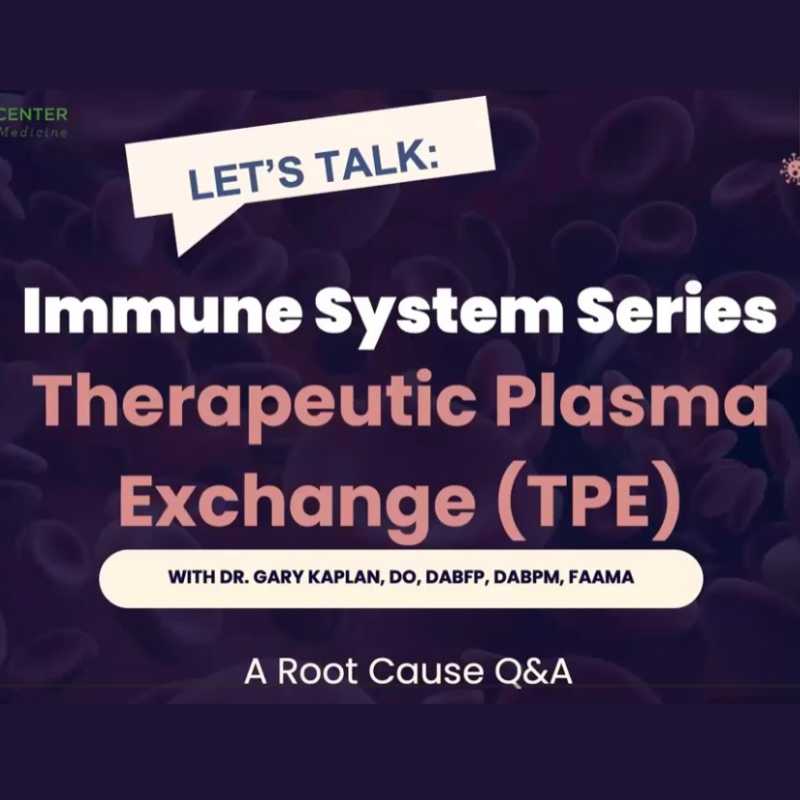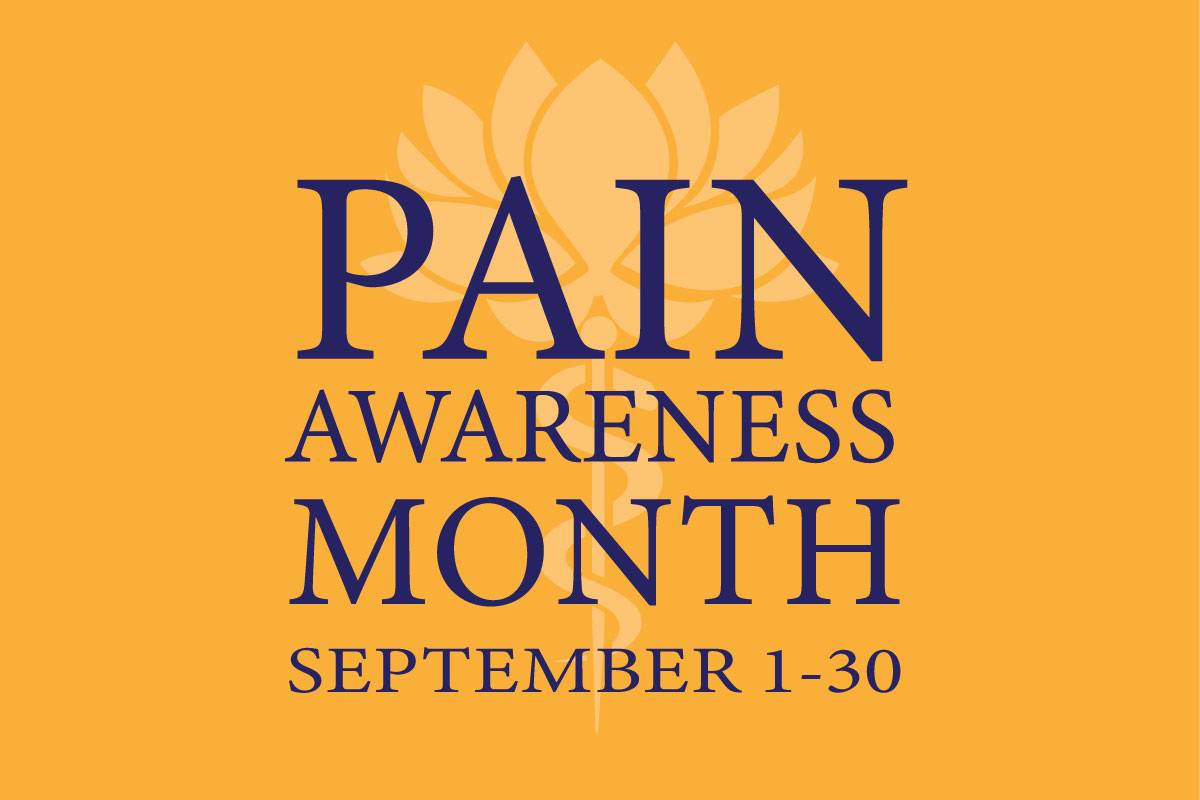
5 Ways We Can Keep Your Immune System Strong
December 10, 2025/by Kaplan Center
Want to Take Your Workout to the Next Level Next Year? These Tips Can Help
December 8, 2025/by Kaplan Center
Dr. Kaplan’s Dos and Don’ts of the Holiday Season
December 3, 2025/by Kaplan Center
Let’s Talk Webinar – A Root Cause Q&A
December 2, 2025/by Kaplan Center
Navigating Holiday Meals with Gut Issues: Simple Tips for a Comfortable Season
December 1, 2025/by Chardonée Donald, MS, CBHS, CHN, CNS, LDN
Craniosacral Therapy for TMJ | Say Goodbye to the Daily Grind
November 19, 2025/by Patricia Alomar, M.S., P.T.
From Compassionate Care to Personal Healing: A Letter to My Patients
November 18, 2025/by Kaplan Center
8 Steps to a Healthier Gut—and a Longer, Healthier Life
November 18, 2025/by Kaplan Center
Mid-Life Irritability & Fatigue Improved by Hormonal Balancing
November 13, 2025/by Lisa Lilienfield, MD
From Challenges to Change: Dr. Kaplan on Healthcare’s Biggest Challenges
October 29, 2025/by Kaplan Center
Overlooked Dangers of Mold Exposure and How to Stay Safe – Dr. Kaplan Talks to WUSA9
October 27, 2025/by Kaplan Center
Let’s ‘Fall’ Into Wellness: A Nutritionist-Approved Immune-Boosting Recipe for Cold and Flu Season
October 13, 2025/by Chardonée Donald, MS, CBHS, CHN, CNS, LDN
PANS/PANDAS – When Sudden Symptoms Signal Something More
October 9, 2025/by Kaplan Center
Beating Burnout, A Nutritionist’s Perspective
October 1, 2025/by Chardonée Donald, MS, CBHS, CHN, CNS, LDN
3 Things That Can Happen After Stopping GLP-1s
September 11, 2025/by Chardonée Donald, MS, CBHS, CHN, CNS, LDN
What Families Need to Know About COVID and Flu Season
September 3, 2025/by Kaplan Center
September is Pain Awareness Month
September 1, 2025/by Kaplan Center
Dr. Kaplan Spoke to Northern Virginia Magazine About COVID, Flu, and Immunity — Here’s What You Should Know
August 14, 2025/by Kaplan Center
“Why Do I Feel Like Crap?”: The Overlap Between Long COVID and Perimenopause
July 30, 2025/by Kaplan Center
Why People Are Turning to EMDR (and Why You Might Want to Too)
July 23, 2025/by Kaplan CenterAre you looking to improve your overall wellness?
Personalized care you can trust.
Our integrative, non-surgical treatment approach is highly successful in maintaining wellness and also treating chronic pain and illness. For more than 30 years, we have delivered superior, cutting-edge health care in the Washington, DC area.
QuickLinks
Contact Information
Tel: 703-532-4892
Fax: 703-237-3105
6829 Elm Street, Suite 300
McLean, Virginia 22101
Map It
Hours of Operation
Mon – Thu : 8 am – 5 pm, ET
Fri : 8 am – 12 pm, ET
Can Antibiotics Cure Your Chronic Back Pain?
/in Treatments/by Gary Kaplan, DOScientists at the University of Southern Denmark say, “Maybe.” New research indicates that 20 to 40 percent of all chronic, lower back pain is caused by bacterial infection and that treating this infection with an extended course of antibiotics can help many patients avoid back surgery.
As a physician who cares for patients with chronic low back pain, I am thrilled about this news! Although surgery is necessary and effective for some patients; far too often, we see patients who still suffer from chronic, low back pain even after undergoing surgery. Learning that a bacterial infection may be the culprit in some of these cases gives us a very promising treatment option to explore.
The results of the Denmark research, which was conducted over a period of 10 years, were reported in two papers published in the peer-reviewed European Spine Journal. The first paper explained how a bacterial infection within a slipped disc causes painful inflammation and small fractures in nearby vertebrae. According to the scientists, when a person suffers a slipped disk, the body grows small blood vessels into the disk to promote healing. But when the microbe commonly associated with acne, “propionibacterium acnes,” is present in that person’s bloodstream, it can get ferried into the disc, causing inflammation in that disc and the surrounding area.
In their second paper, the researchers showed that a 100-day course of the antibiotic “amoxicillin clavulanate” could alleviate chronic, low-back back pain. This double-blind, randomized control trial included 162 individuals, some of whom took the antibiotic, and some of whom took a placebo. Using the Roland-Morris Disability Questionnaire (PDF) to rate their back-pain levels, the group who took the antibiotic reported that their pain dropped from “15” to “11.5” after 100 days, and further improved to “7” after one year. These results stand in sharp contrast to the placebo group, who, after 100 days reported that on average their pain levels fell from “15” to “14.” After 1 year, the placebo group remained at “14.”
It’s important to note that this study did not include people suffering from acute or sub-acute back pain – only those suffering from long-term, lower back pain that lasted six months or longer.
Furthermore, all of the participants underwent MRI scans that proved that they had damaged vertebra. Although additional research is needed to investigate whether individuals suffering from any other kinds of back pain might benefit from taking a course of antibiotics, we now have another tool to help at least some patients obtain pain relief without undergoing surgery.
Of course, we must be mindful that the long-term use of antibiotics can cause other health issues, such as digestive problems and nutritional deficiencies. Therefore, if you consider this treatment, be sure to ask your physician about the possibility of taking probiotics and nutritional supplements to mitigate possible side effects.
Spring Has Blossomed! Have Your Allergies?
/in Conditions/by Kaplan CenterThe onset of spring is a much anticipated time of year for many as we bid farewell to winter doldrums. But while some people breathe a sigh of relief at the first sign of daffodils, there are others who aren’t as inclined to embrace the new season because, for them, the start of spring means saying “hello” to their seasonal allergies.
Allergies can develop early on or later in life, but the symptoms are difficult to tolerate at any age. Allergy sufferers may experience a variety of symptoms, including wheezing, coughing, sneezing, itchy or watery eyes, hives, sinus pressure, scratchy throat, runny nose, and in extreme cases, throat swelling and difficulty breathing. All of these symptoms are inflammatory reactions by the body’s immune system in response to an inhaled allergen – such as pollen or mold spores, pet dander, or environmental toxins – that has made its way into the lungs. An allergic response may be localized to “minor” symptoms, such as watery eyes and sneezing, or it may be systemic, causing a severe, whole-body reaction known as anaphylaxis which requires immediate medical attention. (It is extremely rare, however, for pollens and other inhaled allergens to cause anaphylaxis.) In any event, if you suffer from allergies, normal spring and summertime activities like cleaning your yard or prepping the grill can prove to be overwhelming.
Over-the-counter and prescription medications help many allergy sufferers, but for individuals with medication sensitivities or concerns about possible drug interactions, alternative therapies are a welcome option.
Research has shown that acupuncture can ease allergy symptoms, specifically because of its anti-inflammatory benefits. According to Rebecca Berkson, Licensed Acupuncturist and Diplomat of Oriental Medicine, “in Traditional Chinese Medicine allergies are considered a weakness of the lung system which will result in symptoms of the nose and throat. By strengthening the lung, with acupuncture points located on the wrist and chest, acupuncture can modulate the immune system and normalize the response to such triggers. Acupuncture points over the sinuses can also reduce secretions and drain congestion.”
For those who are uncomfortable with acupuncture needles, acupressure, which targets the same acupoints, can also be an effective remedy for relieving sinus pressure.
In addition, herbal remedies have been found helpful in relieving allergy symptoms. Addressing food sensitivities, consuming an anti-inflammatory diet, and reducing one’s stress level can also help by reducing inflammation in the body.
While you cannot isolate yourself completely from the allergens that are making you sick, you can limit your exposure as much as possible. Modifying your home environment can also make a difference. Consider removing wall-to-wall carpeting, damp-dust your home often, and wash curtains, bedspreads, and pillows regularly to remove dust mites.
Last, although allergies cannot be cured, they can be managed. If you experience any of the above symptoms, be sure to talk to your physician about methods to manage your seasonal allergy symptoms so you can enjoy the great outdoors throughout this spring and summer!
Additional research:
Acupuncture for the treatment of allergic rhinitis. A systematic review protocol
Acupuncture for the Treatment of Allergic Rhinitis: A Systematic Review and Meta-Analysis
We are here for you, and we want to help.
Our goal is to return you to optimal health as soon as possible. To schedule an appointment please call: 703-532-4892 x2
Meditation: Can It Help Reduce Your Pain?
/in Meditation/by Gary Kaplan, DOMeditation, which can be practiced in many different forms, has been used for thousands of years to benefit the mind, body, and soul. Medical research proves that meditation not only modifies brain function but can also actually change the way we experience physical pain.
A study reported in the Journal of Neuroscience showed that patients who had received only a little more than 60 minutes of meditation training were able to dramatically reduce their experience of pain. Patients experienced a reduction in “pain intensity” of about 40 percent and a reduction in “pain unpleasantness” of 57 percent. According to the lead author of the study, Fadel Zeidan, “Meditation produced a greater reduction in pain than even morphine or other pain-relieving drugs, which typically reduce pain ratings by about 25 percent.”
The results confirm what we have seen clinically in our own patients at the Kaplan Center for Integrative Medicine. In fact, in the mid-1990s, I had the opportunity to serve on an NIH Consensus Panel that confirmed the effectiveness of relaxation and behavioral approaches in the treatment of chronic pain and insomnia. Meditation training has been part of the Clinic’s comprehensive treatment program for close to 30 years.
Questions? Give Us a Call!
703-532-4892 x2
In the meantime, medical research has demonstrated that many difficult to treat chronic pain conditions, such as fibromyalgia syndrome, chronic fatigue syndrome, celiac disease, and irritable bowel syndrome, are mediated by central nervous system sensitization. It is only logical that meditation, which improves nervous system functioning, would help to alleviate chronic pain.
This is not to say that meditation is the entire answer; but can be a powerful part of an individual’s comprehensive treatment, along with physical exercise, dietary changes, nutritional supplementation, physical therapy, and appropriate medications.
The following are some practical resources on meditation and working with physical pain, offered by experienced meditators:
My hope is that these tools and the encouraging research results listed below will inspire you to commit to your own meditation practice.
We are here for you, and we want to help.
Our goal is to return you to optimal health as soon as possible. To schedule an appointment please call: 703-532-4892 x2